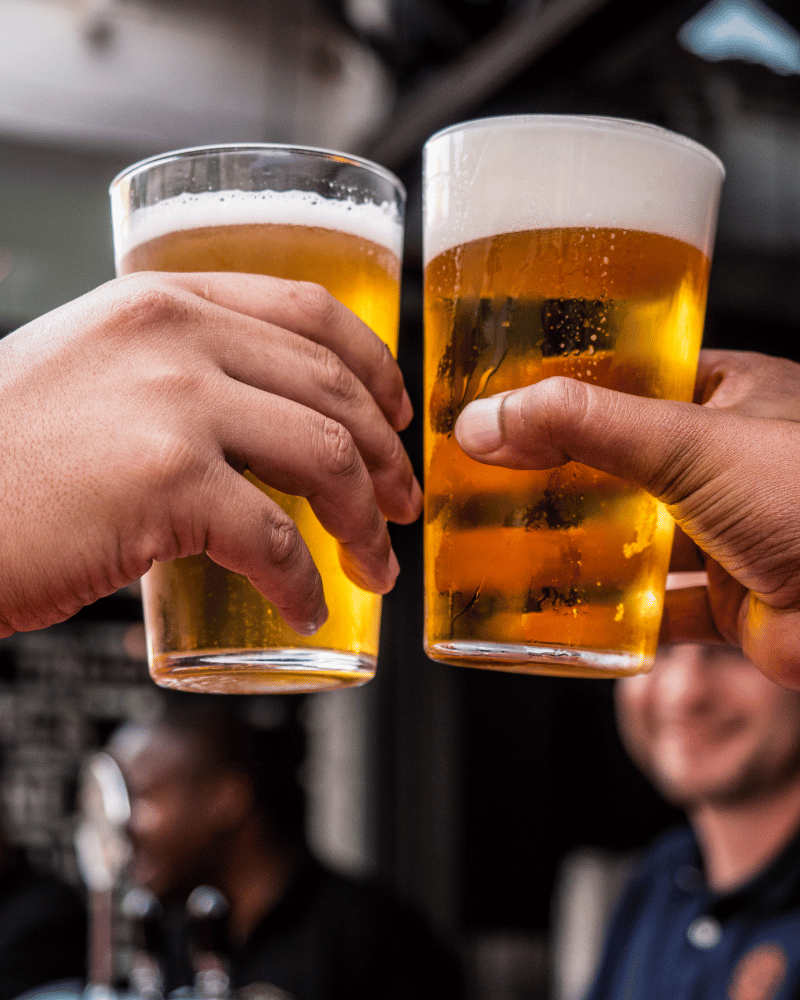Physical symptoms of alcohol dependence: warning signs from the body
Alcohol dependence often manifests through various physical symptoms that may initially seem subtle but become increasingly severe over time. The most common physical signs include trembling, especially in the morning after waking up, sweating without an obvious cause, and an elevated heart rate. People affected often feel exhausted and fatigued, even if they get enough sleep. In addition, gastrointestinal issues such as nausea, diarrhea, or loss of appetite may occur. Over the long term, serious health problems like liver disease, high blood pressure, and a weakened immune system can develop. These physical symptoms are often a clear indication that the body is suffering from constant alcohol consumption and urgently needs help.
Psychological changes caused by alcohol dependence
In addition to the physical effects, psychological changes are a central symptom of alcohol dependence. Those affected are more likely to experience depression, anxiety, or irritability. The ability to cope with stress decreases, which often leads people to use alcohol as an emotional "crutch" to deal with negative feelings. Over time, a strong craving for alcohol develops, dominating thoughts and pushing all other priorities aside. Psychological symptoms such as difficulty concentrating, memory lapses, or mood swings may also occur and significantly impact daily life. These mental changes often result in social isolation, which further reinforces the dependence.


Behaviors of people with alcohol dependence
People who are dependent on alcohol often display noticeable behavioral changes that are hard for those around them to miss. A common symptom is drinking in secret or hiding alcohol to conceal their consumption. Those affected tend to downplay or minimize their drinking habits in front of others. Another sign is the inability to stop once they have started drinking. Social obligations or hobbies are often neglected because alcohol increasingly dominates their time and attention. Many people also start making up excuses for why they need to drink and take more and more risks, such as drinking and driving or neglecting important responsibilities.
Alcohol dependence and sleep disorders: A vicious cycle
A common symptom of alcohol dependence is sleep disturbances. Although many people initially use alcohol as a sleep aid, long-term consumption leads to the opposite effect: a disrupted sleep cycle. While alcohol may make it easier to fall asleep, it impairs sleep quality, especially the deep sleep phases. Many affected individuals wake up after just a few hours, feel restless, and have difficulty falling back asleep. This ongoing lack of sleep can result in increased fatigue, irritability, and problems with concentration during the day—a vicious cycle that often leads people to consume even more alcohol in an attempt to cope with their sleep problems.
How alcohol addiction affects everyday life
Alcohol dependence has far-reaching effects on the daily lives of those affected. Even simple tasks that were once easy to handle become increasingly difficult. Concentration declines, work performance drops, and relationships often suffer as a result of the addiction. For many people with alcoholism, daily life increasingly revolves around the next drink, leading to missed appointments, neglected responsibilities, and abandoned hobbies. Financial problems are also common, as a significant portion of income is spent on alcohol. At the same time, self-care decreases—hygiene, healthy eating, and exercise are neglected because the focus is on alcohol.

Mood swings and alcohol: A common symptom
Alcohol dependence is often accompanied by severe mood swings. These typically occur when blood alcohol levels drop and the body craves more alcohol. Those affected can shift from feeling euphoric and relaxed to irritable and aggressive within a very short time. Depressive moods and feelings of hopelessness are also common, especially as alcohol consumption leads to increasingly negative consequences in life. These emotional rollercoasters make it difficult to maintain stable relationships and often cause those affected to withdraw further or create conflicts within their social circles.
The craving for alcohol: A central symptom of addiction
An unrelenting craving for alcohol is one of the clearest symptoms of dependence. This craving is not only physical but also psychologically intense. Those affected often feel a strong compulsion to consume alcohol and find it hard to think about anything else. This urge for alcohol increases over time, especially in stressful or emotionally challenging situations. Even after long periods of abstinence, the craving can suddenly and unexpectedly return, increasing the risk of relapse. People often try to fight this urge by making promises to themselves to drink less or not at all—but control over consumption has already been lost.
Alcohol withdrawal
As soon as someone with alcohol dependence tries to reduce or completely stop their consumption, withdrawal symptoms often occur. These can be both physical and psychological. Typical symptoms include trembling, sweating, nausea, headaches, and an increased heart rate. Insomnia, irritability, and severe anxiety are also common during alcohol withdrawal. In severe cases, hallucinations or seizures may occur, which is why withdrawal should often take place under medical supervision. It is important to seek professional help early to alleviate symptoms and increase the chances of achieving successful and lasting abstinence.



